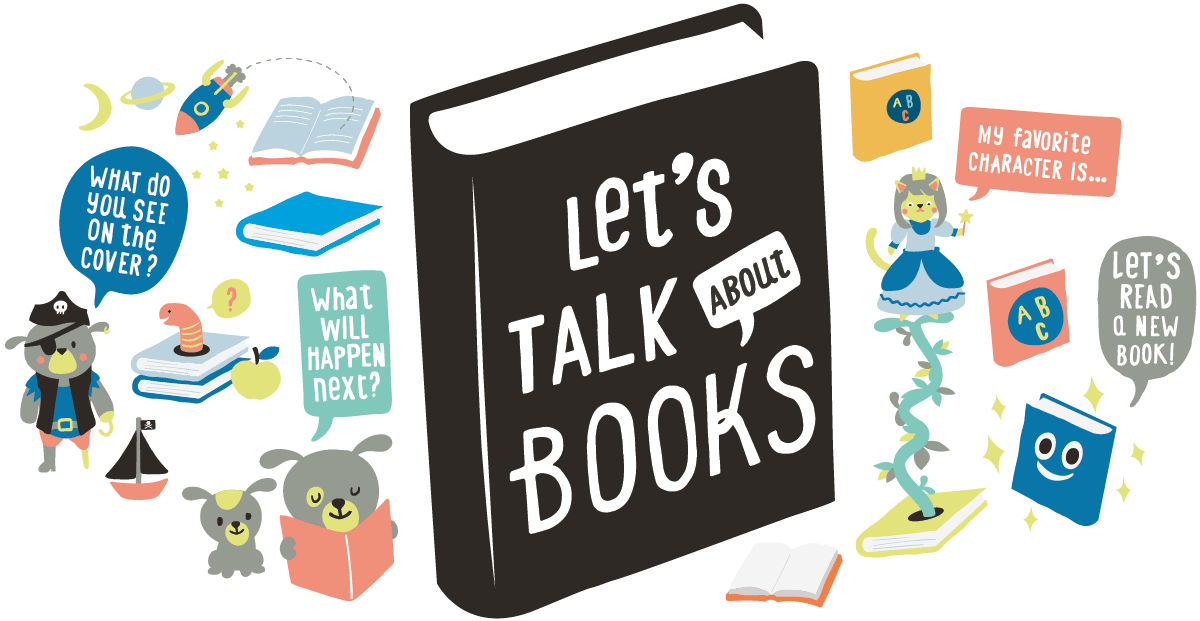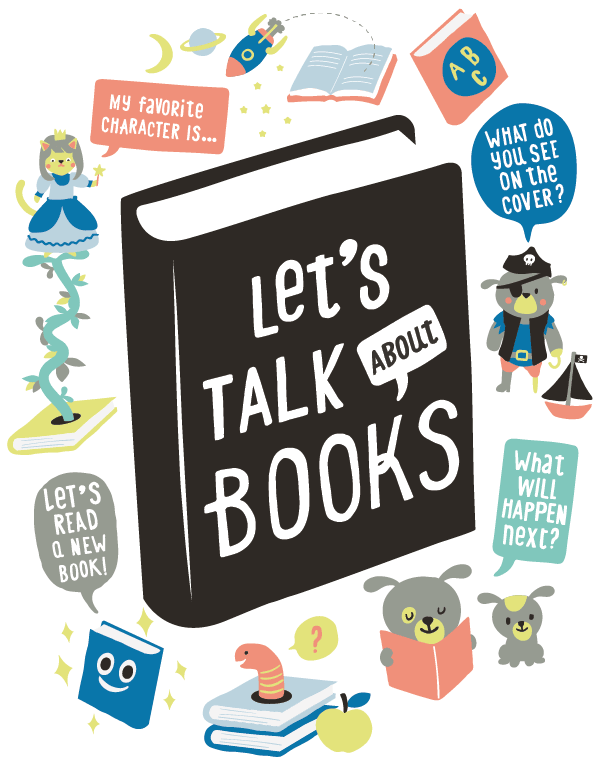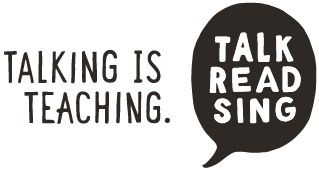Talk, read, and sing together every day!
It's never too early to help your child learn.
Research has identified five early reading skills that are all essential.
Phonemic Awareness
Being able to hear, identify, and play with individual sounds (phonemes) in spoken words.
Phonics
Being able to connect the letters of written language with the sounds of spoken language.
Vocabulary
The words kids need to know to communicate effectively.
Reading Comprehension
Being able to understand and get meaning from what has been read.
Fluency (oral reading)
Being able to read text accurately and quickly.

You can help your child's language skills by talking, reading, and singing with him or her every day. It's easy to do and can make a big difference in how your child learns and grows!
Story Times at the Library

Developmental Milestones
Birth to 2 Months
- Coos, makes gurgling sounds
- Turns head toward sounds
Tip: Respond to your baby's first smiles, gurgles and coos – she's talking to you and wants you to talk too!
4 Months
- Begins to babble
- Babbles with expression and copies sounds he hears
Tip: Hold and talk to your baby; smile and be cheerful while you do.
6 Months
- Responds to sounds by making sounds
- Responds to own name
- Begins to say consonant sounds (jabbering with "m," "b")
Tip: Read books to your baby every day. Praise him when he babbles and "reads" too.
9 Months
- Understands "no"
- Makes a lot of different sounds like "mamamama" and "bababababa"
Tip: Describe what you baby is looking at; for example, "red, round ball."
12 Months
- Uses simple gestures, like shaking head "no" or waving "bye‑bye"
- Tries to say words you say
18 Months
- Says several single words
- Points to show someone what he wants
2 Years
- Points to things or pictures when named
- Says sentences with 2 to 4 words
- Follows simple instructions
Tip: When you read with your child, have her turn the pages. Take turns labeling pictures with your child.
3 Years
- Follows instructions with 2 or 3 steps
- Talks well enough for strangers to understand most of the time
- Carries on a conversation using 2 to 3 sentences
4 Years
- Tells stories
- Can say first and last name
- Knows some basic rules of grammar, such as correctly using "he" or "she"
5 Years
- Speaks very clearly
- Says name and address
- Uses future tense; for example, "Grandma will be here."


